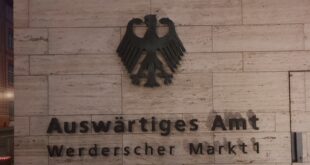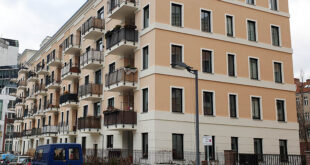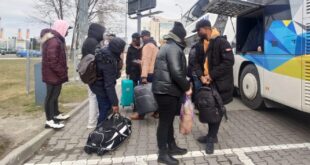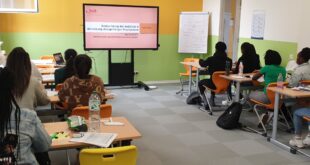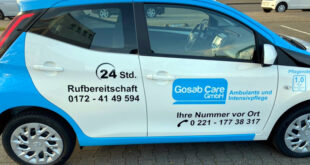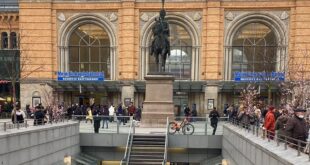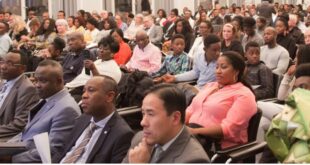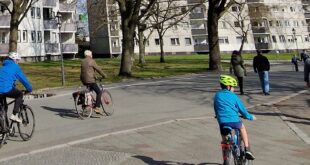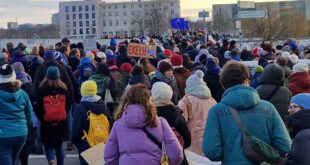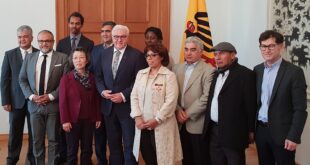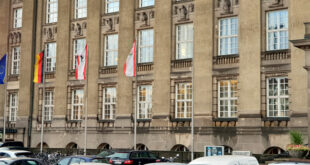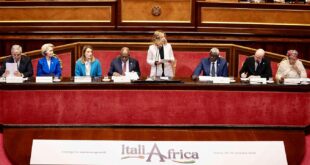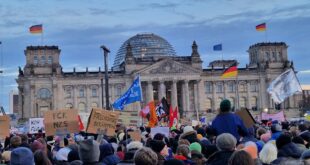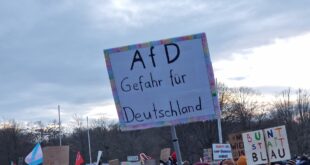One hundred groups meet in Berlin, call for change in the discussion of migration issues
They take our jobs. They put pressure on our social services. They bring war, diseases and uncivilised social practices. They degrade our culture and threaten our societies. Everything was better before they arrived… These are just a few of the myths about migrants and refugees that are routinely spread by the media and politicians in Germany and other European countries. Depicting migrants, refugees and asylum-seekers as a burden on national economies and a danger to social cohesion, these myths combine to build a specific “narrative” on migration that leads to fear and anxiety among the public and oppressive reactions from governments.
Just how big is the gap between the mainstream narrative and the hard facts on migration in Germany? What can be done to ensure that refugees and people of migrant origin are granted the full rights they are entitled to as members of German society? These and other concerns were behind the formation of the New German Organisations (Neue Deutsche Organisationen or NDO) early last year. Member groups say they no longer want to be described as migrant and foreigner associations. Their message is that to be German today is more than having German forebears.
A recent German Census found that 19 per cent of residents had a migrant background. Almost all of those with a migrant background were in the former West Germany, led by Hamburg, where 28 per cent of residents had a migrant background, Baden-Wuerttemberg, 26 per cent and Berlin, 24 per cent.
Under the motto “Germany, we must talk,” representatives of more than 100 groups founded by people with a migration background met in Berlin at the 2nd Federal Congress of the NDO on 26-27 February. The conference was called in reaction to the current debate on the refugees coming to Germany and the rising number of violent racially-motivated attacks on asylum hostels in the country. Since the beginning of this year 226 attacks, of which 38 were arson attacks, have been recorded, according to the anti-racism organisation Amadeu-Antonio-Stiftung.
The participants at the conference emphasised that they were not migrants but part of the society. Given the recent visibility of organisations such as Pegida (a far-right movement founded in Dresden in October 2014 that promotes anti-Islamic political positions), it has become necessary to come out and let the world know that there are Germans who are not White.
The hard facts of demographic development in Germany were cited to buttress the position of the organisation. For example, more than 50 per cent of pupils in many big cities are from migrant families. “An integration policy for migrants is yesterday,” said Breschkai Ferhad, the co-ordinator of the NDO. “We need an inclusive social policy that considers us all as one.”

Kwesi Aikins, a member of the Initiative Schwarzer Menschen in Deutschland (Initiative of Black People in Germany or ISD), likened recent developments in the country to the situation in the early 1990s when a wave of hate-motivated attacks were carried out by violent extreme right-wing groups in reaction to the arrival of many refugees in Germany. “We’re experiencing the success of Black and anti-racist work. There are more complaints from people affected by racist police controls and who resist them,” he assured.
An activist and the initiator of the online campaign Kampagne#schauhin, Kübra Gümüsay, said the ongoing debate on migration and asylum was a source of great worry. Referring to the New Year’s Eve incident in Cologne involving persons suspected to be of migrant origin who molested women and girls, Gümüsay said the images and the reporting of the unfortunate incident promoted the terrible stereotype about asylum-seekers and Muslims. “We need to discuss these issues in a cool-headed and rational way and we should not allow the right wing to dictate the tone of the conversation,” she added. “Those of us who stand for the Germany of the 21st century should participate more actively in such discussions.”
The NDO made concrete demands on the state which they will pursue in the years ahead. These include a call on government to consider the diversity of society in the training and school systems. “Diversity education should be included as a compulsory subject in the curriculum of teacher training education,” the organisation demanded. The NDO also called for the creation of a Ministry of Social Policy which should be in charge of all measures for equality and against racism as well as integration programmes for new immigrants.
Moreover, the group called for the amendment of the constitution to include that “Germany is a diverse country of immigration and it promotes equal participation and integration”.
Kwame Appiah
 THE AFRICAN COURIER. Reporting Africa and its Diaspora! The African Courier is an international magazine published in Germany to report on Africa and the Diaspora African experience. The first issue of the bimonthly magazine appeared on the newsstands on 15 February 1998. The African Courier is a communication forum for European-African political, economic and cultural exchanges, and a voice for Africa in Europe.
THE AFRICAN COURIER. Reporting Africa and its Diaspora! The African Courier is an international magazine published in Germany to report on Africa and the Diaspora African experience. The first issue of the bimonthly magazine appeared on the newsstands on 15 February 1998. The African Courier is a communication forum for European-African political, economic and cultural exchanges, and a voice for Africa in Europe.




